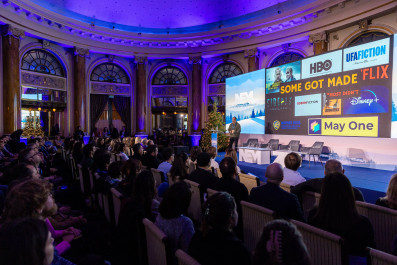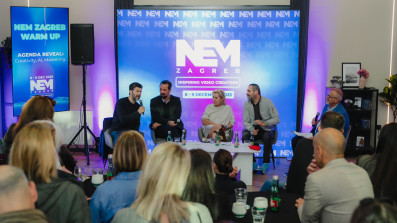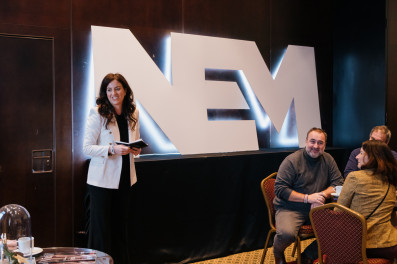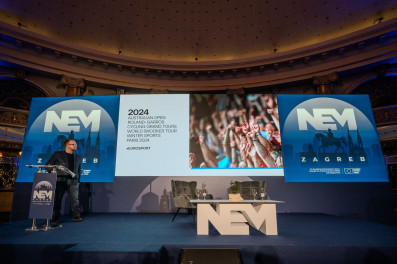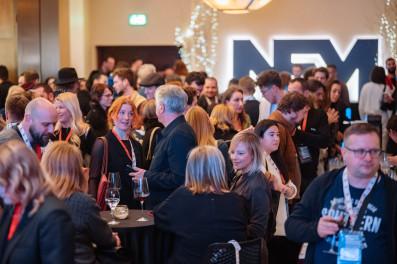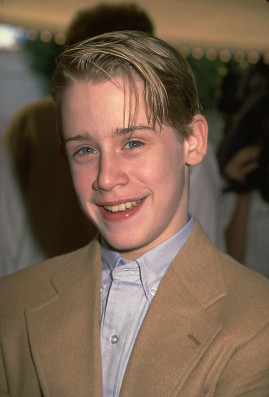Caliphate - The thin red line of ideology indoctrination and radicalism in Netflix acclaimed series
Filmed and set between Sweden and Jordan this dramatic piece compresses the fundamentalist principles formed as extremist terrorism.
I would have let her die if it would save other people, and I hope you understand that
(Fatima Zukic, Caliphate S01E08)
A newborn baby is cooed tenderly by a woman named Pervin -played by Gizem Erdoğan- of indeterminable age, her small frame bent lovingly over the child's small body, wrapped up in blankets. then quickly clad in a black overall with a burka over her eyes, black gloves on her hands, every inch of skin invisible to everyone, is on the way to meet her friend on the streets of Raqqa in the heart of ISIS´ state. Witnessing several bombings and public mutilation as a sign of retaliation in the name of the Almighty is Pervin's daily routine, surrounded by the same flowing black mass of females amidst the rubbles and screaming. Thus opens the Swedish SVT-Netflix wrenching mini-series Caliphate, created by Wilhelm Berhman, produced by Filmlance - best known for The Bridge, and directed by Goran Kapetanovic -best known for My Aunt in Sarajevo.
Filmed and set between Sweden and Jordan (dubbing Raqqa), this dramatic piece compresses one of the foremost threats of modern society, the fundamentalist principles formed as extremist terrorism. Written by Niklas Rockström, the idea originated from a headliner naming three British teenagers who fled their families for the sake of joining ISIS. Compensating this uncompassionate yet gripping story is the well-versed expose of several narratives joined by an underlying compromise they live through, limitations imposed upon them by either men or government.
On both sides now
Pervin, a Turkish-born Swede Muslim met a sensible, yet pliant Husam-played by Amed Bozan- moving within weeks to Syria, barely seventeen at the time. Utilizing religion here as a form of sincere God-loving, obedient service induced per need with a sense of rebellion and awakened awareness, Pervin’s life spiralled quickly into an all-around horror her sensibility keeps in check, trailing with her husband’s nightmares after attacks on civilian boys and a constant threat of being stoned alive. A masterly performance is given by Erdoğan as she fights to flee back to Sweden, determined to protect her daughter from the extremist environment.
While Pervin's reality doesn't allow women to use mobile phones under the threat of imprisonment, back in Sweden is Fatima Zukic-played by Aliette Opheim, a Bosnian-born refugee from Srebrenica, now a member of Special Services for Middle-East affairs, caught in a career downfall. A chance contact between two women will propel most unlikely espionage, as Zukic compassionately but orderly asks Pervin to serve as a dummy spy in order to prevent a future attack on Sweden.
Tipping into radicalization and precipitating the enslavement under Caliphate leading to forced marriage, is a step further from trusting the religion, in its most literal evaluations, professes its martyrs live under the thumb of non-believers, therefore deserving to be extinguished. This distinct space is a perfect manipulating device, as presented by Ibbe - starring Lancelot Ncube, a school counsellor and a member of ISIS, easily approaching intelligent but easily submissive teenagers, the likes of Suleika and Kerima - starring Nora Rios and Amanda Sohrabi. Showing the startling velocity with which the deadly recruitment is made, it is also a nod to a vastly coloured origin, as it presents people with Iranian, Chechnyan origins, some of them hailing from broken homes under violent fathers, as their paths to fulfilment and appreciation is actually far from what they imagined.
There is no solace; there is some hope
Caliphate’s cinematography of constant threat, wide close-up shots and transient flow makes its atmosphere true to the captivating character the nature of such space possesses. With anti-western propaganda, the “religion” as Caliphate puts it, forms a distinct circle of brotherhood, lining everyone else as enemies-not of them personally, but of God. Their service in getting rid of the “unfaithful swines”, as it is often proclaimed, is a question of honour, much like five daily prayers.
There is no glorification of war on either side, there is also no presentable solution for ending it. In its entirety, the series implies the need for a healthy assessment of our beliefs, rather than implicating hatred for certain religions. Through the modern culture and western sentiment that often backfires due to open oppression of minorities, one of the instruments that make Caliphate so apprehensive at first sight is the semi-documentarist anxiety of accessible wide web materials and, thus, their mutilation and misinterpretation. We see the dichotomies of family life and the estrangement touching the formative age of teenagers in deterministic ways.
The moral system compelled by skilful infiltration, the facts bending by the lascivious interpretations, the religion stained under radicalizing bloodthirst-the palette of Caliphate burns bright if ever-increasingly aggravating. Its ultimate principle is to strike a dialogue between both sides.
This is no end of the world, but it could be. The message delivered by the series is simple-how? How does one change, how does one allow to change so quickly committing themselves wholly to oppression so vast? No religion demands that much blood, no religion offers so little solace. And somewhere between Fatima’s stubborn askance for more information, Pervin’s life hanging on a thread with each pressed button and the short background shot in Sulle-Suleika´s class, seeing a covered Muslim girl, we might think this will make me a better man. This will make me know violence, this will, if a faithful one, make me pray. Sometimes, that is all we need.


